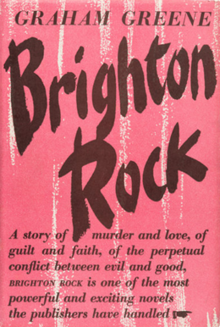
Henry Graham Greene was an English writer and journalist regarded by many as one of the leading novelists of the 20th century.

Charles Pierre Péguy was a French poet, essayist, and editor. His two main philosophies were socialism and nationalism; by 1908 at the latest, after years of uneasy agnosticism, he had become a believing Roman Catholic. From that time, Catholicism strongly influenced his works.
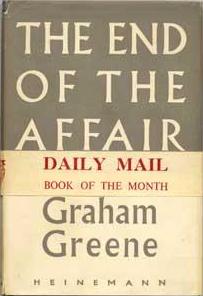
The End of the Affair is a 1951 novel by British author Graham Greene, as well as the title of two feature films that were adapted from the novel. Set in London during and just after the Second World War, the novel examines the obsessions, jealousy and discernments within the relationships between three central characters: writer Maurice Bendrix; Sarah Miles; and her husband, civil servant Henry Miles.

Ministry of Fear is a 1944 American spy thriller film noir directed by Fritz Lang, and starring Ray Milland and Marjorie Reynolds. Based on the 1943 novel by Graham Greene, the film tells the story of a man just released from a mental asylum who finds himself caught up in an international spy ring and pursued by Nazi agents after inadvertently receiving something they want. The original music for the film was composed by Victor Young.
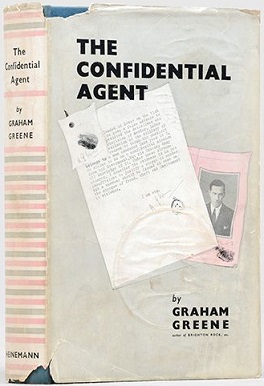
The Confidential Agent (1939) is a thriller novel by British author Graham Greene. Fuelled by Benzedrine, Greene wrote it in six weeks. To avoid distraction, he rented a room in Bloomsbury from a landlady who lived in a flat below him. He used that apartment in the novel and had an affair with the landlady's daughter. He wrote the book for money and was so displeased with his work that he wanted it published under a pseudonym. But critics took a far different view; The New York Times, for example, called the novel "a magnificent tour-de-force".

Jamaica Inn is a novel by the English writer Daphne du Maurier, first published in 1936. It was later made into a film, also called Jamaica Inn, directed by Alfred Hitchcock. It is a period piece set in Cornwall around 1815. It was inspired by du Maurier's 1930 stay at the real Jamaica Inn, which still exists as a pub in the middle of Bodmin Moor.
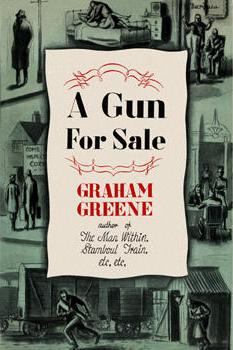
A Gun for Sale is a 1936 novel by Graham Greene about a criminal called Raven, a man dedicated to ugly deeds. When he is paid, with stolen notes, for killing the Minister of War, he becomes a man on the run. Tracking down the agent who double-crossed him, and eluding the police simultaneously, he becomes both the hunter and the hunted. The novel was published and filmed in the United States under the title This Gun for Hire.
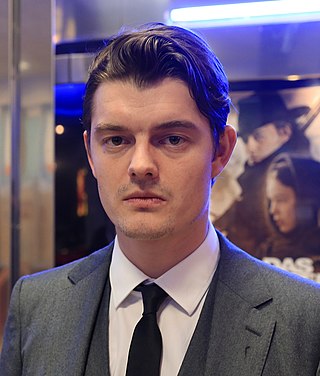
Samuel Peter W. Riley is an English actor and singer. He is best known for his performance in the 2007 biographical film Control about the life of Ian Curtis, as protagonist Sal Paradise in the 2012 adaptation of the Jack Kerouac novel On the Road, and as Diaval in the 2014 film Maleficent. Riley received renown for his portrayal of Fitzwilliam Darcy in the 2016 film Pride and Prejudice and Zombies.

They Won't Forget is a 1937 American drama film directed by Mervyn LeRoy and starring Claude Rains, Gloria Dickson, Edward Norris, and Lana Turner, in her feature debut. It was based on a novel by Ward Greene called Death in the Deep South, which was in turn a fictionalized account of a real-life case: the trial and subsequent lynching of Leo Frank after the murder of Mary Phagan in 1913.
Dona nobis pacem is a phrase in the Agnus Dei section of the mass. The phrase, in isolation, has been appropriated for a number of musical works, which include:

Andrea Louise Riseborough is an English actress. She made her film debut with a small part in Venus (2006), and has since appeared in more prominent roles in Brighton Rock (2010), W.E. (2011), Shadow Dancer (2012), Oblivion (2013), Birdman (2014), Nocturnal Animals (2016), Battle of the Sexes, The Death of Stalin, Mandy, Nancy, The Grudge, Possessor, and To Leslie (2022). For the latter, she was nominated for the Academy Award for Best Actress.
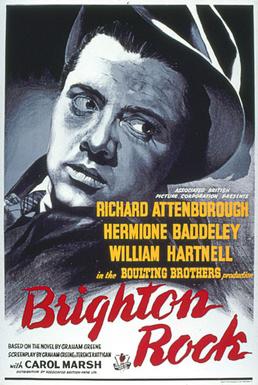
Brighton Rock is a 1948 British gangster film noir directed by John Boulting and starring Richard Attenborough as violent gang leader Pinkie Brown, Rose Brown as the innocent girl he marries, and Ida Arnold as an amateur sleuth investigating a murder he committed.

The Ministry of Fear is a 1943 novel written by Graham Greene. It was first published in Britain by William Heinemann. It was made into the 1944 film Ministry of Fear, directed by Fritz Lang and starring Ray Milland.
Noughts & Crosses is a series of young adult novels by British author Malorie Blackman, with six novels and three novellas. The series is speculative fiction describing an alternative history. The series takes place in an alternative 21st-century Britain.
"Now My Heart Is Full" is a song by British singer Morrissey from his fourth solo album Vauxhall and I. The song's refrain of "Dallow, Spicer, Pinkie, Cubitt" references the gangsters from Graham Greene's 1938 novel Brighton Rock and the film of the same name.
Don Macpherson is a British screenwriter working in films and television.

Brighton Rock is a 2010 British crime film written and directed by Rowan Joffé and loosely based on Graham Greene's 1938 novel of the same name. The film stars Sam Riley, Andrea Riseborough, Andy Serkis, John Hurt, Sean Harris and Helen Mirren.
Rose Laure Allatini was an Austrian-British novelist who wrote under the pseudonyms R. Allatini, A.T. Fitzroy, Mrs Cyril Scott, Lucian Wainwright, and Eunice Buckley. She is best known for her 1918 novel Despised and Rejected, which was banned under the Defence of the Realm Act as it combines themes of pacifism and homosexuality which were thought "likely to prejudice the recruiting of persons to serve on His Majesty's Forces". Despised and Rejected was published by C. W. Daniel and was taken up by the Bloomsbury Group. The novel has been described by Angela K. Smith as drawing a connection between the persecution of homosexuals and the rhetoric of imperialism. It tells the story of a young woman's complex relationship with a homosexual composer who is conscripted for military service; his refusal leads to trial and imprisonment.
Brighton Rock is a 1943 British play by Frank Harvey that ran for a hundred performances at the Garrick Theatre in the West End. Richard Attenborough and Dulcie Gray starred in the original theatrical production, and there had previously been one-week try-outs at the Grand Theatre, Blackpool and Bristol Hippodrome.

Lockdown is a 2020 mystery thriller by Scottish crime writer Peter May, set against the background of a deadly influenza pandemic. He wrote it in 2005, but it was rejected for publication as unrealistic. It was published in April 2020, during the COVID-19 pandemic and its resulting lockdowns.
